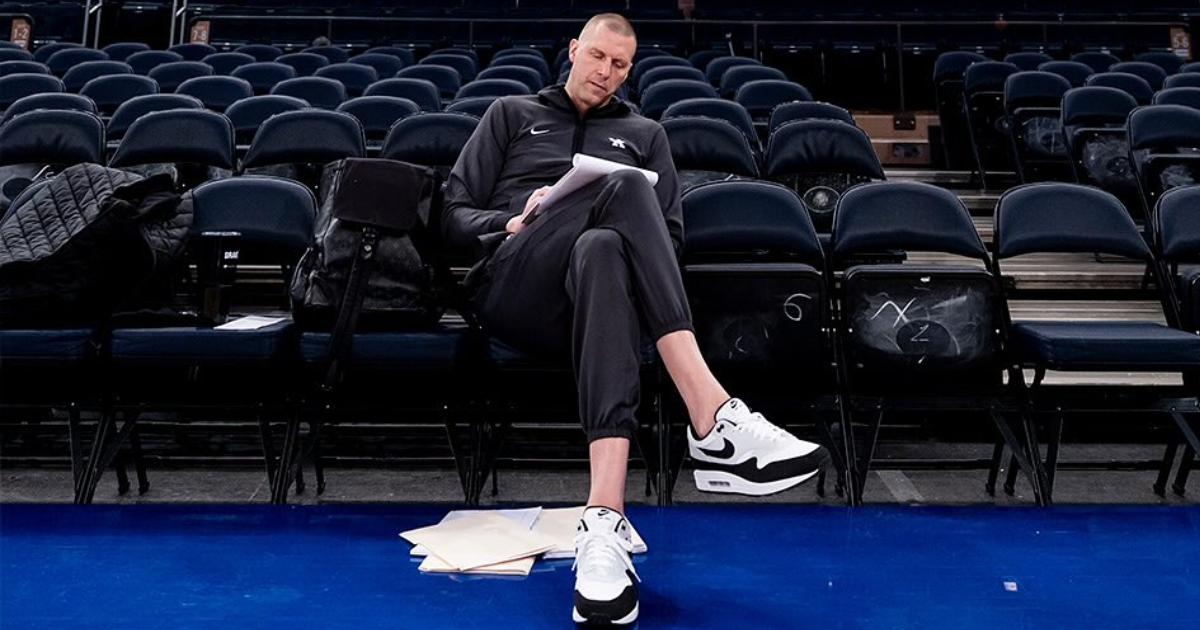Massachusetts
All Massachusetts public school students will now be entitled to free lunch

BOSTON – Gov. Maura Healey has made it official – Massachusetts public school students will get free lunch for good.
“Nobody calls them free lunch anymore or free meals, it’s just lunch, everybody just has lunch,” said Rebecca Wood, who told WBZ TV, she wasn’t always confident her 11-year-old, Charlie, would have access to school lunch.
“It’s awful, it truly is. She’d come home and say, Mom, you have to give money to the cafeteria again. I didn’t want her to know we were struggling and she had strangers telling her that we were,” said Wood.
And like so many others, Charlie didn’t qualify for reduced lunch, forcing Wood to make impossible decisions.
“I would get a paycheck in but with the high cost of housing and the medical expenses, it was gone,” said Wood.
“In Massachusetts if you were a family of four making $52,000 a year, you were not eligible for free or reduced-price meals. There are a lot of families in Massachusetts struggling to get by on $52,000,” said Erin McAleer, the CEO and president of Project Bread, a group advocating for statewide access to food. Project Bread said as of May 2023, 26.2% of Massachusetts households are food insecure. The shocking statistic lead to roughly 18,000 people reaching out to elected officials, ensuring the free meals program became a reality.
“We’ve taken the burden off of kids and kids can just go to school and get free school meals,” says McAleer.
The program will be paid for with both federal and state funding, including help from the 2022 voter-approved fair share amendment that levies a 4% tax on income over one million dollars – that tax is used for transportation and public education systems.
“We know that students who are sitting in a classroom hungry are not learning,” said McAleer.

Massachusetts
Mass. State Lottery winner: Lucky store sold 6 winning tickets Friday

It was the final day of the fall, but for one store in Arlington, it was their luckiest day of the year.
On Friday, Dec. 20, Peter Pan Superette in Arlington sold six winning Keno tickets, each worth $9,600.
While over the course of the year the store has at times sold two winners in one day, Friday was the only time in 2024 the total grew to six.
Overall, at least 565 worth $600 or more were won or claimed in Massachusetts on Friday, including six in Springfield, 29 in Worcester and 42 in Boston.
The Massachusetts State Lottery releases a full list of winning tickets every day. The list only includes winning tickets worth more than $600.
So far, the largest lottery prize won in Massachusetts this year was worth $1 million a year for life.
The prize was from the lottery’s “Lifetime Millions” scratch ticket game. The winner claimed their prize through a trust on July 10, and opted to receive a one-time payment of $15.4 million.
Massachusetts
How much snow in Massachusetts? Here are the storm totals for December 20

BOSTON – More than five inches of snow fell in several towns in eastern Massachusetts on Friday. Boston picked up 4.4″ of snow, one of the biggest snowfalls in almost three years.
Here are the latest snow totals from the National Weather Service, Rob Macedo, the SKYWARN Coordinator for the National Weather Service in Taunton, and WBZ-TV Weather Watchers.
Norwood 6.0 inches
Dedham 6.0
Walpole 5.5
Needham 5.5
Danvers 5.3
Topsfield 5.0
Cambridge 4.9
Newton 4.5
Boston 4.4
Randolph 4.0
Foxboro 4.0
Milford 3.2
Rehoboth 3.2
Millville 3.0
North Attleboro 2.0
West Yarmouth 2.0
Worcester 1.0
Massachusetts
Stunned Massachusetts educators, ADL call for MassCUE apology after ‘hateful’ anti-Israel and Holocaust rhetoric at conference

Local educators and the ADL are pushing for an apology from MassCUE after the group’s recent “jarring” conference when speakers reportedly spewed “hateful” anti-Israel and Holocaust rhetoric.
MassCUE’s fall education tech conference — held in partnership with the Massachusetts Association of School Superintendents at Gillette Stadium — apparently went off the rails during a panel on equity in education. That’s when the discussion reportedly delved into the current Middle East conflict in Israel and Gaza.
“Speakers leaned very heavily into the Israeli-Palestinian conflict in a very one-sided, dangerous rhetoric,” Uxbridge High School Principal Michael Rubin told the Herald.
That included references to “Israeli genocide” and “Israeli apartheid.”
A panelist also suggested that the teaching of the Holocaust has been one-sided, and “two perspectives needed to be taught,” recalled Rubin, whose grandparents survived the Holocaust, during which the Nazis killed 6 million Jews.
“It was jarring, unexpected, and unprofessional,” added Rubin, who’s also the president of his synagogue.
Following complaints from several shocked conference attendees, the Anti-Defamation League’s New England chapter recently wrote a letter to MassCUE, as the ADL pushes for a public apology.
“It is difficult to understand why an organization dedicated to education and technology would allow a panel discussion ostensibly focused on school equity to instead veer into a complex and controversial foreign conflict,” ADL New England’s deputy director Sara Colb wrote to MassCUE’s leaders.
“It is all the more concerning that once the conversation veered in that direction it was not stopped or redirected to the advertised topic,” Colb added. “Allowing a presentation purporting to be about equity and inclusion in the classroom to include a one-sided narrative of a foreign conflict, replete with hateful, biased rhetoric, does a disservice to attendees by leaving them with a biased and misinformed account of the conflict.”
MassCUE (Massachusetts Computer Using Educators) is the Bay State affiliate of the International Society for Technology in Education.
More than two months after the fall conference, the organization has not addressed the Israeli-Palestinian discussion.
“At MassCUE we take feedback very seriously and work hard to ensure we take any and all necessary steps to address concerns that are brought to our attention,” said MassCUE Board President Casey Daigle. “This process takes time. Please know we are working through our procedures internally.”
The silence from MassCUE’s leaders has been “really concerning,” Rubin emphasized.
“How comments like these about the Holocaust don’t warrant an immediate response is really, really, really confusing to me,” added Rubin, who was given the 2024 MassCUE Administrator Award two days before this panel.
“If a student was targeted by a racial slur in our buildings, we would be involving local authorities, contacting families, sending a letter to the community, but MassCUE is working through their internal procedures. It doesn’t add up,” he said.
The executive director of the Massachusetts Association of School Superintendents said M.A.S.S. was “troubled to hear that any of the speakers at the conference may have made statements that are inconsistent with the anti-racist values of our organization.”
“We are working with MassCUE to learn more about the content in question,” added Executive Director Mary Bourque.
Other than ADL’s push for a public apology from MassCUE, the ADL is calling for the organization to:
- Review its policies and vetting protocols for presentations at programs and make all necessary improvements to ensure that presenters stay on topic, and that “participants will not be subjected to this sort of inflammatory propaganda again.”
- Listen to the concerns of impacted members and participants, and elicit their thoughts on how to “counter the harm this presentation caused.”
- Issue a public statement acknowledging the problems with this program and reinforcing MassCUE’s values of inclusivity for everyone.
“At a time when incidents of antisemitic hate, including in our K-12 schools, are at record highs, it is deeply wrong and dangerous to provide a platform for such hateful rhetoric or to allow a platform to be hijacked for such purposes,” the ADL deputy director wrote. “It is surprising to have to make this point to educators who purport to be concerned with equitable and inclusive classrooms for all students.”
-

 Politics1 week ago
Politics1 week agoCanadian premier threatens to cut off energy imports to US if Trump imposes tariff on country
-
/cdn.vox-cdn.com/uploads/chorus_asset/file/25782636/247422_ChatGPT_anniversary_CVirginia.jpg)
/cdn.vox-cdn.com/uploads/chorus_asset/file/25782636/247422_ChatGPT_anniversary_CVirginia.jpg) Technology1 week ago
Technology1 week agoInside the launch — and future — of ChatGPT
-
/cdn.vox-cdn.com/uploads/chorus_asset/file/25789444/1258459915.jpg)
/cdn.vox-cdn.com/uploads/chorus_asset/file/25789444/1258459915.jpg) Technology1 week ago
Technology1 week agoOpenAI cofounder Ilya Sutskever says the way AI is built is about to change
-

 Politics1 week ago
Politics1 week agoU.S. Supreme Court will decide if oil industry may sue to block California's zero-emissions goal
-
/cdn.vox-cdn.com/uploads/chorus_asset/file/25546252/STK169_Mark_Zuckerburg_CVIRGINIA_D.jpg)
/cdn.vox-cdn.com/uploads/chorus_asset/file/25546252/STK169_Mark_Zuckerburg_CVIRGINIA_D.jpg) Technology1 week ago
Technology1 week agoMeta asks the US government to block OpenAI’s switch to a for-profit
-

 Politics1 week ago
Politics1 week agoConservative group debuts major ad buy in key senators' states as 'soft appeal' for Hegseth, Gabbard, Patel
-

 Business6 days ago
Business6 days agoFreddie Freeman's World Series walk-off grand slam baseball sells at auction for $1.56 million
-
/cdn.vox-cdn.com/uploads/chorus_asset/file/23951353/STK043_VRG_Illo_N_Barclay_3_Meta.jpg)
/cdn.vox-cdn.com/uploads/chorus_asset/file/23951353/STK043_VRG_Illo_N_Barclay_3_Meta.jpg) Technology6 days ago
Technology6 days agoMeta’s Instagram boss: who posted something matters more in the AI age

















